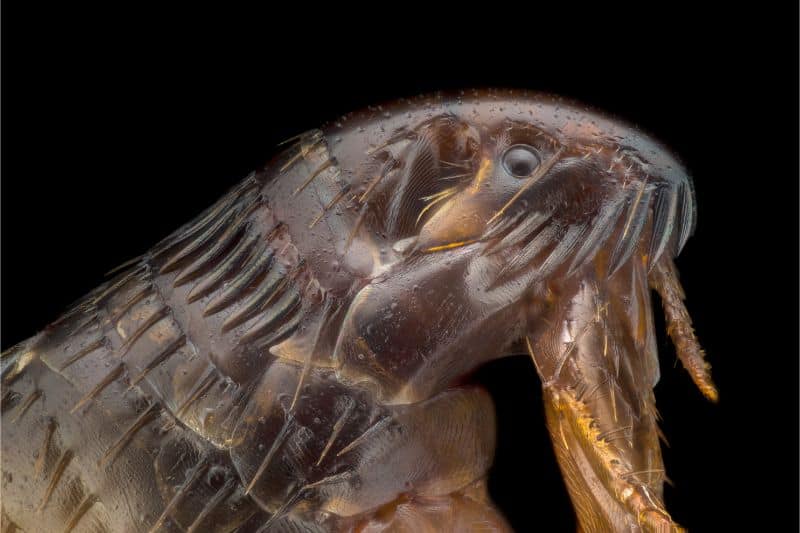Spooky, Creepy, and Crawly Pet Parasites

It’s that time of year when things go bump in the night. Spooky jack-o-lanterns, cackling witches, and distant screams make up a lot of the fun around Halloween.
The team at Animal Medical Hospital loves fun scares as much as anyone, but we don’t want them to be because of your four-legged family friends. Pet parasites may be creepy, but they have no place in a fun Halloween season!
Close Encounters
When fending off the Freddy Kreugers of the world, it is important to know your enemy well. Familiarizing yourself with the different possible pet parasites can help you to slay your nemesis before they get you first.
Common pet parasites include:
Heartworms — While you may never see these guys, heartworms are perhaps the scariest of the pet parasites. Transmitted by mosquitoes from animal to animal, the larvae that is handed off during feeding can grow to be six to seven inches long. Residing in the heart and major blood vessels, they can have some serious implications.
Fleas — Fleas are abundant in the environment here in North Carolina. An infested animal often experiences itching and irritation and may even develop serious skin lesions and hair loss. Fleas can also carry diseases such as Bartonella, making them terrifying. Fleas can even host, and pass on, tapeworms.
Ticks — These blood-suckers are not to be left out of the fun. A tick’s ability to spread diseases like Lyme and Ehrlichia can make anyone scream.
Other ectoparasites — Not to be forgotten, other external parasites such as lice and skin mites are often responsible for itching, hair loss, and other skin conditions in pets.
Intestinal parasites — Most often passed through ingestion of fecal matter or other organisms, intestinal parasites usually live in the gastrointestinal tract of their hosts. Many are microscopic, but you may get to experience some of them first hand in stool or vomit if your pet is not protected.
Preventing Pet Parasites
It may be a thrill to stick your hand into that bucket labelled “worms” at a Halloween bash, but you certainly don’t want to encounter any intestinal parasites in your pet.
Thankfully, it is relatively easy to keep your pets parasite-free and keep the holiday surprises at your neighborhood get together.
Together we can control pet parasites by:
- Checking fecal samples for parasites 1-2 times annually
- Testing periodically for heartworm disease
- Keeping your pet on year round heartworm prevention
- Treating or preventing intestinal parasites as recommended
- Using prescription flea and tick prevention year round
While not all parasites are entirely preventable, most times we are able to address the issue before you have a close encounter of the third kind.
Preventing pet parasites may look a little different in each individual pet and household. Please let us know if you need recommendations about how to best do this for your family.
While dressing up like a tick for trick or treating may not have the same effect as channeling your inner Dracula, pet owner who know realize that they are just as scary. Pet parasites are a real scare. A little effort on your end, though, can help you limit the Halloween fun to the more traditional monsters.
